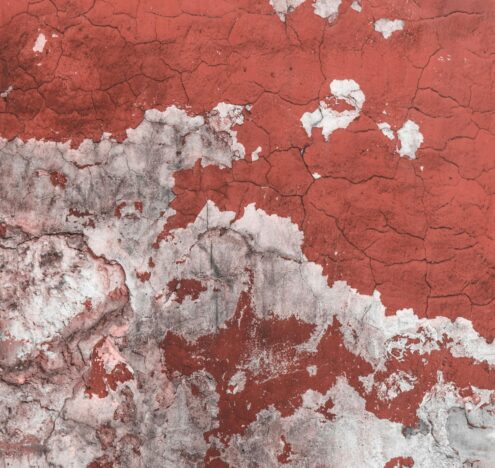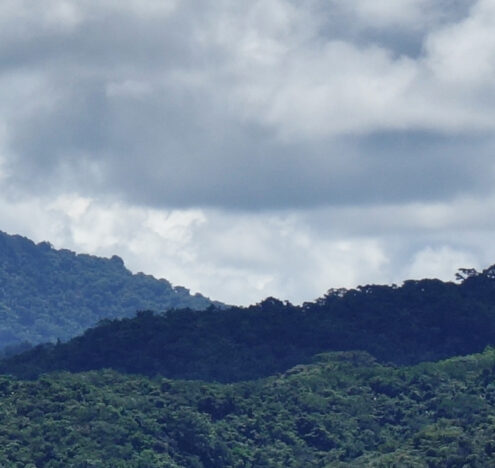As Pakistan faces the devastating consequences of the super floods that have covered a third of the country, women in particular have been left extremely vulnerable amidst displacement and the spread of diseases.
According to UN figures, 650,000 women in areas impacted by the crisis are pregnant, and 73,000 women are expected to give birth within a month. But there is a significant lack of support and resources, which could severely impact the kind of healthcare these women receive in some of their most vulnerable moments. With basic food, water, and shelter hardly reaching many of those displaced and stranded, quality healthcare remains a dream for many. Sindh, the second hardest-hit province, has seen over a 1000 medical facilities destroyed by the flood waters. Even before the floods washed them away, these facilities were severely lacking and ill-equipped to provide quality healthcare.
GROUND REALITIES IN SINDH
The horrific stories of the impacts of the floods have shocked those working on the ground who are working to provide aid. Zarfashan Farheen, who works with Al Khidmat Women’s Wing to provide healthcare, shelter, and education with a specific focus on women’s needs, told Inkstick that when the charity’s first responder teams were asked what resources they needed the most, they said it was burial cloths. Respectful burials for all the casualties were at the forefront of everyone’s minds.
With flood waters not expected to recede for months and waterborne diseases on the rise, pregnant women face severe physical and mental health risks. Experts warn that children and pregnant women are at increased risk of Hepatitis E and other fast-spreading illnesses, with the former being of particular concern to pregnant women as it can lead to liver failure, miscarriage, and death.
Even before the flooding crisis, women’s health usually took a back seat in policy-level decisions and social conversations. Shame and taboos limited open discussions of women’s health issues, and women are often shut out of high-level decision-making forums. This is what inspired midwife Neha Mankani to start Mama Baby Fund, a charity focused on providing mothers and communities with supplies, aid, and awareness about their own health and their baby’s wellbeing.
Since starting the initiative six years ago, Mankani has been associated with Baba Island, a small fisherman’s community off the coast of Sindh, which had no hospital. Mama Baby Fund started a clinic there in collaboration with Indus Hospital to provide much-needed emergency relief services to pregnant women. However, when the flooding crisis washed away basic health units in many villages and worsened the healthcare crisis, Mama Baby Fund’s communications manager Wishaal Khalid said the 4-employee strong organization was not prepared for the level of assistance needed to ensure the safety of vulnerable women across the country.
The floods in Pakistan have highlighted the urgent need to make women’s health and family planning a priority, and government policies need to incorporate grassroots-level realities.
“Out of our 4-person team, only Neha is a fully trained midwife and she’s constantly been in the field,” Khalid told Inkstick, adding, “When we started getting demands for birthing kits and supplies from relief workers on the ground, it was initially too much for us but we knew we had to step up and do what we can.” Some of this demand came from communities they’d worked with before, while a majority came from relief organizations who wanted to add their kits to the relief packs they were sending to affected areas. These included Indus Hospital along with smaller community-led efforts like Madat Balochistan or Help Balochistan, a charity campaign that began after the floods.
Mama Baby Fund was one of two organizations in the area that devoted their efforts solely to maternal health before the floods and so were best placed to provide the supplies needed because they knew the needs of the communities affected. However, the scale of the disaster pushed them to stretch their resources and time as much as possible to meet as many needs as possible.
Rachel Firth, global feminist advocate, founder of Women in Dev, and a collaborating partner on the PUSH Campaign, told Inkstick that more funding needs to be directed toward midwives’ associations. “The care they provide goes beyond childbirth. Midwives can provide 90% of sexual and reproductive health services — including services that are often overlooked or deprioritized during crises, such as abortion and contraceptive care,” she said.
According to Mehreen Shahid, the founder of Safe Delivery Safe Mother, Pakistan has one of the highest maternal mortality rates in Asia, yet 70–80% of those deaths are preventable. For women who will not have access to any sort of healthcare unit, Shahid and Mankani and their teams are creating at-home birthing kits and supplying them to any flood relief organizations and campaigns that request them in an effort to reach as many affected communities as possible.
Mama Baby Fund is also using social media to reach volunteers who want to help them pack supplies. They are also sharing resources for those who may wish to pack their own emergency kits. Mama Baby Fund has already distributed 8000 kits to campaigns across the country. Shahid said her team was able to map out areas in need and distribute kits themselves as they were already working with the government on data collection in South Punjab. Safe Delivery Safe Mother has distributed 2000 kits while another 500 are in process.
IMMEDIATE HEALTHCARE PROVISIONS ARE NOT ENOUGH
For women who have given birth in relief camps and areas inundated with water, the physical labor of simply getting themselves to safety or having access to proper food, water, or shelter has seriously impacted their mental health. In Qambar Shahdadkot, Sindh, 22-year-old Durnaz Soz Ali reported being unable to feed herself or her newborn because of the lack of resources available.
“Pregnant women are extremely vulnerable because they cannot change their timeline,” Shahid said, when talking about the urgency of getting pregnant women help as part of the initial relief phase and prioritizing their needs. Yet, the horrific state of women’s healthcare even before the floods makes it clear that this will be a long-term problem that will require more than just investment into initial relief.
Farheen, who has been working with Al Khidmat’s team to establish mobile dispensaries for affected areas, said the organization is already working on long-term planning because immediate healthcare provisions will not be enough. “Women and children who are displaced can face PTSD and other serious psychological issues. Even after they are rehabilitated, they may not be able to lead normal lives without trauma counseling, and so we are planning support and counseling for the long-term,” she said.
“What would be great is to raise the question of why this is an underserved area. What is needed to bring attention to this area and what needs to be done,” Shahid said while adding that family planning programs need strengthening. While those policies do exist, their implementation is an issue, with family planning campaigns being countered by disinformation. The floods in Pakistan, however, have highlighted the urgent need to make women’s health and family planning a priority, and government policies need to incorporate grassroots-level realities.
It’s not just Pakistan that needs to take action but leadership on an international level. “The world is short 900,000 midwives. Governments need to invest in their midwifery workforces and quality education for midwives to ensure women receive the best possible care,” said Firth, adding, “In the event of a natural disaster, more midwives would mean that more women have touch points close to home to access the life-saving care they need. Societies need to guarantee the health and well-being of the next generation.”
Anmol Irfan is a freelance journalist and founder of Perspective Magazine. Her work focuses on gender justice movements across the globe and looks at the intersectionality of such movements with areas like media, tech, climate, and more.





















